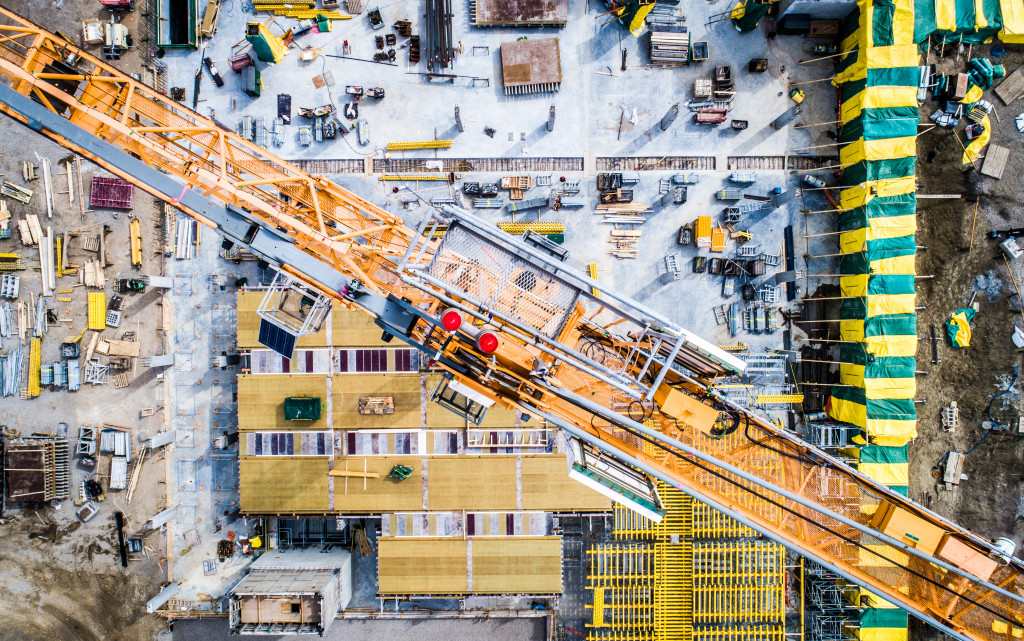- Conduct a comprehensive risk assessment to identify potential challenges and establish protocols to address them.
- Choose a reliable contractor with the necessary licenses, certifications, and experience for the project.
- Use high-quality materials from reputable vendors to ensure durability and long-lasting results.
- Establish effective communication between stakeholders to ensure everyone is on the same page.
- Set a realistic budget and schedule considering all associated costs and contingencies.
If you’re building a commercial property, you’re probably aware that construction projects are complex and multifaceted processes that require close attention to detail. Creating a high-quality product requires a good understanding of the industry and a plan to manage interrelated processes effectively. This is why the success of your project depends on aligning all your resources and ensuring that you coordinate all the moving parts.
This blog post will discuss tips to help you handle your commercial property construction project. These tips can ensure accuracy, control costs, enhance safety and quality, and help you swiftly complete your project.
1) Manage Risk:
Before you start, conducting a comprehensive risk assessment is essential to determine the potential challenges that may arise. Identifying potential risk factors can require significant time and expertise but will help you avoid possible problems. Establish protocols and procedures that address safety standards, potential hazards, project delays, cost overruns, and contract-related claims.

2) Choose the Right Contractor:
When it comes to large commercial construction projects, choosing the right contractor is critical. Depending on your budget and the task, you may opt for a general contractor or subcontractor. Ensure that the contractor has a good track record of successful projects in your region, the required licenses and certifications, and the financial capabilities to execute your project. They should also understand the project goals and timelines well to ensure quality output.
3) Use High-quality Materials:
Using high-quality materials is essential to building a durable and long-lasting property. Ensure that the products you use are up to standard and sourced from reputable vendors. Doing so will help you avoid costly repairs and replacements down the line. Here are some areas to focus on:
a. Metalwork
Ensure that all the metalwork used in your building is of high quality and meets standards set by local regulatory authorities. You want to work with reliable metal supply services that provide reliable, long-lasting products. They should also be able to offer custom fabrications when needed.
b. Flooring
You want a durable material for floors that can withstand heavy foot traffic. Hardwood, stone, ceramic tiles, and vinyl are popular options. The floor’s design should also be considered, depending on the usage of the property.
c. Plumbing
Installing high-quality plumbing fixtures is essential for your project. Poorly installed fixtures can cause water damage, which may be extremely costly to repair. Make sure that your plumbing contractor is experienced and certified.
d. Electric
All electric equipment should be installed following local safety codes. It is crucial to work with an experienced electrical contractor who can install high-quality wiring and fixtures and who can ensure the safety of your building. They should also be able to advise on alternative power sources, such as solar energy.

4) Communication:
Effective communications with all stakeholders are essential for the success of your project. The key stakeholders include the client, design team, contractor, and subcontractors. Ensure that everyone is aware of project timelines, milestones, and deliverables. Use a project management system to share updates and information, report all the milestones, and consult with your team often to ensure everyone is on the same page.
When communicating with subcontractors, make sure that they understand the scope of work and that they are adhering to safety protocols. Some subcontractors may be working in remote locations, so ensure they have the resources to stay connected. If needed, arrange periodic site visits to ensure the project is on track.
5) Set a Realistic Budget and Schedule:
Commercial construction projects can quickly become complicated, and it’s essential to establish a realistic budget and schedule before beginning the process. Consider all the costs associated with each project stage, including permits, fees, labor, materials, and equipment. You should prepare a contingency plan of at least 10% of the project budget. This assists in allocating funds for unexpected requests or modifications.
Managing commercial construction projects can be overwhelming and tedious. With the right management and monitoring approach, however, you can complete your project successfully by utilizing the right tools and expertise. By following the best practices and tips outlined in this blog post, you will surely have a successful project with maximum profitability, safety, and satisfaction. Remember that communication and collaboration are critical for any project, so keep all stakeholders involved and informed throughout the process.

